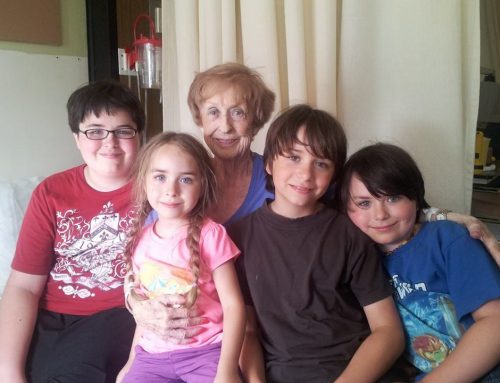When talking with other people about unschooling, the idea of unschooling is often met with awe and and agreement, however, the practice is often regarded as just not a possibility… at least not for “their” children…
“If I didn’t sit my kid down they would do nothing all day”
“I let my kid do what he wanted for a whole week and he played video games all week.”
“My kids just don’t have the motivation to learn things they don’t have to learn.”
After years of being schooled ourselves we have been taught that being forced, or at the least being “taught”, is the only way to learn… We were imprinted with the idea that school was the place to learn, it was often boring and mundane, but it was necessary, and we had to be there or we would be nothing when we grew up…
and of course we always looked forward to summer vacation so that we could do “nothing”…
but did we do nothing?… did we learn “nothing”? or was it just that it looked like nothing because we enjoyed it and we were not learning in the traditional sense, and we didn’t have anything to “show”… at least not if someone is looking at it from a schooling perspective.
I am saddened to see that so many people just do not have confidence in children, some seem to think that unschooled children are just some other species of kids that are always wanting to do projects or wanting to “school” themselves… and I agree that there are some that probably do, and as kids get older then it is even more probable, but honestly in our house it isn’t like that, and I know that in the homes of other young unschoolers I know, it isn’t like that either.
What often happens is that for those who have tried to unschool for a short period after having “schooled” is that they don’t give their children or themselves the adequate time to deschool. As Sandra Dodd sums up beautifully “Stop thinking schoolishly. Stop acting teacherishly. Stop talking about learning as though it’s separate from life.”
A child may look like they are doing nothing but are they really? Are they honestly sitting there staring into space? and if they are, are they really thinking about “nothing”?
A child may play video games “all of the time” but are they really not learning anything? Do you really think that once the novelty wears off that they won’t move on, or if they don’t, isn’t it possible that their interest may stem into something else.
What does motivation look like? Isn’t it more likely that children are motivated but it is just not in what the parent thinks they should be motivated about. Can it be that when a child shows a bit of interest in something that the parent takes things over instead of helping to guide anf therefore the child loses the interest because it is not theirs anymore.
I truly have confidence in the fact that kids want to learn and they are always learning. I have confidence that my kids will go into adulthood with all the knowledge they need to have. I think that everyone, homeschooling or not should have more confidence in children’s abilities and love of learning.
It saddens me to hear parents have so much lack of confidence in their children because though I have to agree that it is an ongoing struggle to put preconceived notions about education aside at times, it is the children who are losing the most.
The thing is, I don’t think that unschooling is for all families, but I do think that all children can be unschooled. I would rather hear that a family chooses not to unschool because of various reasons (lack of confidence in themselves, need to control, belief in traditional education etc) then to hear them blame their childrenby saying that they are just not able to learn by themselves.




What a fantastic post, Paxye!
Indeed! Grace Llewellyn, in one of her books about unschooling talks about how some kids who are taken out of school after a few years of being in the ‘system’ often spend their first few weeks, months even, ‘de-schooling’ their brains (like deprogramming I guess). Often, they don’t realize that they can learn on their own or don’t realize that their own interests have value until ‘school’ wears off.
I am getting ready to start homeschooling my daughter in the fall so I have been reading a lot about different methods of homeschooling and unschooling and all of that. I was interested to read your comments about unschooling but I admit I still have many hangups about the concept.
I expect my kids to go to college someday. How does unschooling prepare them for college? What is the transition like between free learning and the classroom learning that college requires? What about things that are required for them to know to get into college? I know when I was in traditional school I had subjects that I loved and subjects that I hated. All were necessary for me to get into college though (based on requirements of the college). I loved school and loved learning but given the option, I would have been more than happy to sit in my French and Music classes all day long and forget about Biology! I guess I’m still not “getting it” on how kids will be motivated to learn things they honestly have no interest in if it is left up to them?
And a second question. With the expectation of college in mind – standardized testing is unfortunately a necessary evil whether I agree with it or not. How does the unschooler prepare for that situation? Example: A person can learn about physics in action by watching a roller coaster, but can they sit down and do the calculations on the standardized test?
I really want to do some child-led learning with my daughter but I also want to make sure she is learning what she is “supposed” to be learning so she can achieve long-term educational goals.
Thank you for answering my questions (if you have the time!)
Bethany, I am going to respond in a post… your questions are questions that I have been asked often, so I think that a post might be seen better that a comment…
I’ve said it before, I’m rambling, but for me this Alan Moore quote sums it up more than perfectly. Talking about school, and its covert functions, he said:
“The real curriculum is punctuality, obedience and the acceptance of monotony… those skills we shall require in later life; oblique aversion therapy to cure us of our thirst for information, and condition us so that thereafter we forge an association between indolence and pleasure.” (Taken from ‘The Birth Caul’)